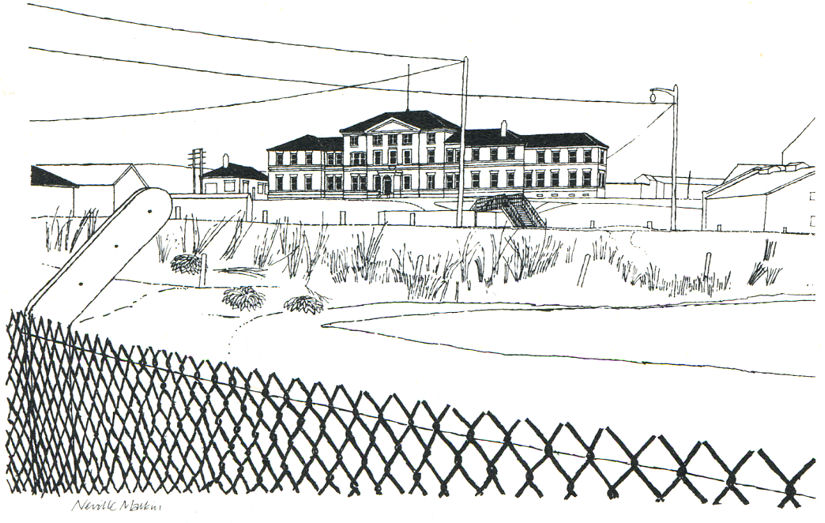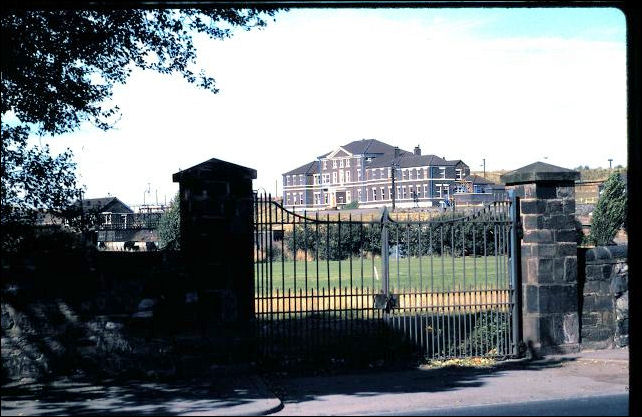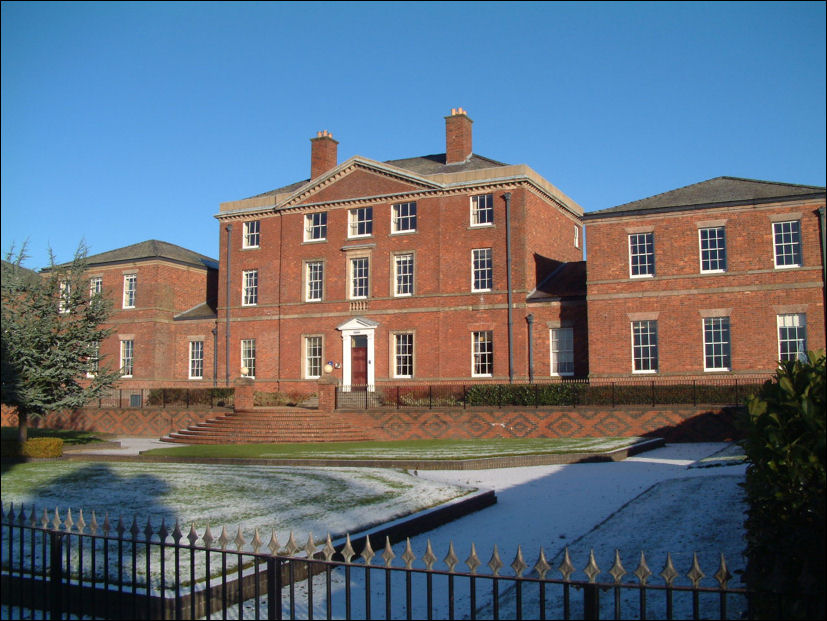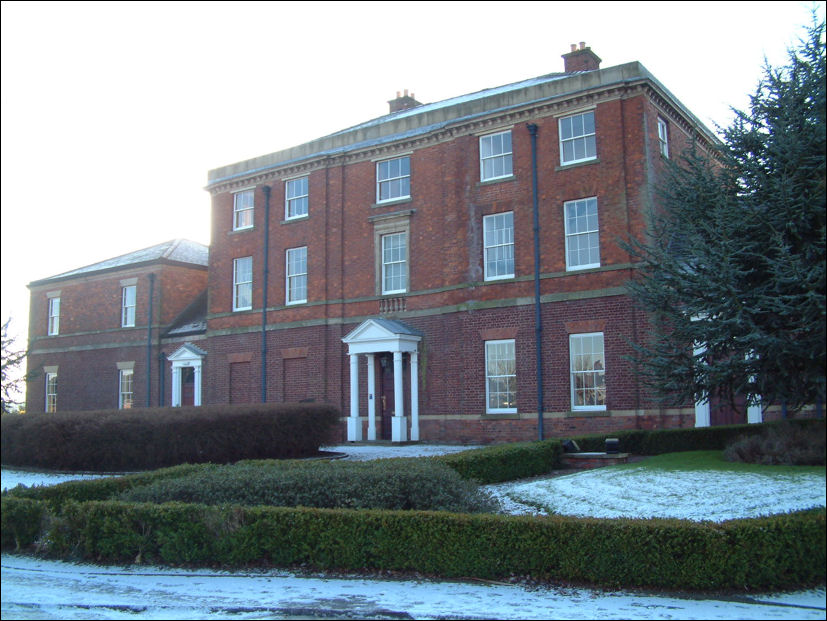|
|
|
![]() back to "The Grand Tour" index
back to "The Grand Tour" index
Neville Malkin's "Grand Tour" of the Potteries
buildings of
Etruria
![]()
![]()
![]()
next: the Roundhouse
previous: Little
Sisters of the Poor, Cobridge
contents: index of buildings in Etruria
|
No 56 - Etruria Hall
a engraving of the hall when Etruria Vale was still a green and wooded landscape [Reproduced by permission
of the
|

Etruria Hall
pen drawing by Neville Malkin - July 1974

Etruria Hall from the nearby park (c.1960's)
photo: Ken Cubley
|
"In
what was once a splendid pastoral setting stands Etruria Hall, now the
offices of Shelton Iron and Steel. It was built in 1769 by Josiah
Wedgwood, on the site known as Ridge House Estate, which he had
acquired for £3,000. The middle section of the building is the
original Hall; the two wings were added at a later date. The Wedgwood
family moved into the Hall on November 11th, 1769; that same night
Josiah entertained 120 of his workmen in the Town Hall at Burslem.
Many distinguished people of the period stayed at the Hall, and their
various discussions probably played a significant role in the early
stages of the Industrial Revolution. Josiah II (1769-1843), who became
an eminent member of Parliament, continued to live in the Hall after
his father's death in 1795. In 1824 Etruria Hall was being used as a school for young ladies and gentlemen, conducted by Mr. and Mrs. Magnus and four resident assistants. Board and tuition was 20gns. per annum for pupils under 14 and 24gns. for pupils over 14. In a prospectus of the period you would have read "Etruria Hall is delightfully situated on a rising ground in the centre of a pleasant park about a mile from Newcastle, through which coaches pass daily." The school appears to have flourished for several years. By 1842 the Hall was occupied by Mr. and Mrs. Francis Wedgwood, and in 1856 became the residence of Mr. W. S. Roden, a working partner in the adjacent ironworks, and, later, Mayor of Hanley. In 1864 the Rodens entertained 250 children from the nearby Granville School. The band of the First Staffordshire Artillery Volunteers, Mr. Roden, Captain-Commandant, headed the procession of children from the school to the Hall where "Plum cakes and buns, and games were the order of the day." Eventually, the Hall was acquired by Shelton Iron and Steel and, with encroaching industry, Etruria lost its rural identity."
|

Frontage of Etruria Hall (now
part of a hotel complex)

Rear of Etruria Hall
photos: Jan 2010
![]()
![]()
![]()
next: the Roundhouse
previous: Little
Sisters of the Poor, Cobridge
contents: index of buildings in Etruria
back to "The Grand Tour" index